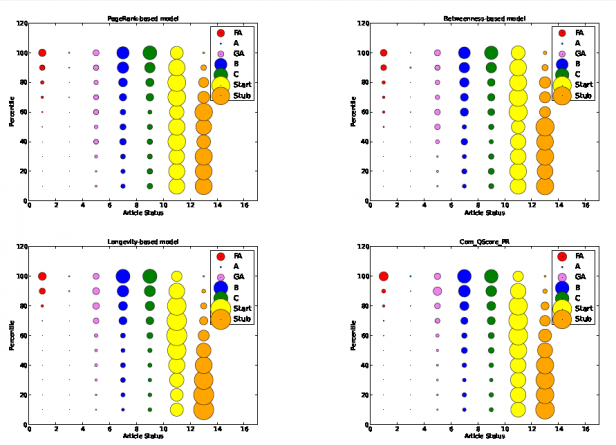This New Algorithm Will Be Able to Assess The Quality of Wikipedia Articles
Nov 01, 2013 22:33
How reliable can Wikipedia be if it is being contributed by just about anyone who can name a source. And how do you tell if that source is credible?
There is an algorithm now that assesses the quality of Wikipedia articles to reassure visitors and help focus editors on entries that may need improving.

Xiangju Qin and Pádraig Cunningham from the University College Dublin in Ireland developed an algorithm that assesses the quality of Wikipedia pages based on the authoritativeness of the editors involved and the longevity of the edits they have made.
“The hypothesis is that pages with significant contributions from authoritative contributors are likely to be high-quality pages,” they say. Given this information, visitors to Wikipedia should be able to judge the quality of any article much more accurately.
The idea on measuring the longevity of an edit here is that a high-quality edit is more likely to survive future revision.
And since vandalism is also a problem on Wikipedia, Qin and Cunningham ignore all anonymous contributions and also take an average measure of quality to reduce the impact of malicious edits.
The algorithm also takes in the account the authority of each editor, who help maintain the various editorial standards and spread this knowledge throughout the community.
Qin and Cunningham combine these metrics of longevity and authority to produce a measure of the article quality.
“Articles with significant contributions from authoritative contributors are likely to be of high quality, and that high-quality articles generally involve more communication and interaction between contributors,” they conclude.
There is an algorithm now that assesses the quality of Wikipedia articles to reassure visitors and help focus editors on entries that may need improving.

Xiangju Qin and Pádraig Cunningham from the University College Dublin in Ireland developed an algorithm that assesses the quality of Wikipedia pages based on the authoritativeness of the editors involved and the longevity of the edits they have made.
“The hypothesis is that pages with significant contributions from authoritative contributors are likely to be high-quality pages,” they say. Given this information, visitors to Wikipedia should be able to judge the quality of any article much more accurately.
The idea on measuring the longevity of an edit here is that a high-quality edit is more likely to survive future revision.
And since vandalism is also a problem on Wikipedia, Qin and Cunningham ignore all anonymous contributions and also take an average measure of quality to reduce the impact of malicious edits.
The algorithm also takes in the account the authority of each editor, who help maintain the various editorial standards and spread this knowledge throughout the community.
Qin and Cunningham combine these metrics of longevity and authority to produce a measure of the article quality.
“Articles with significant contributions from authoritative contributors are likely to be of high quality, and that high-quality articles generally involve more communication and interaction between contributors,” they conclude.







































































